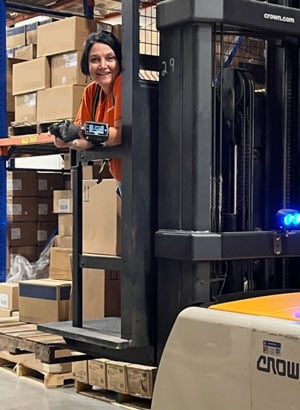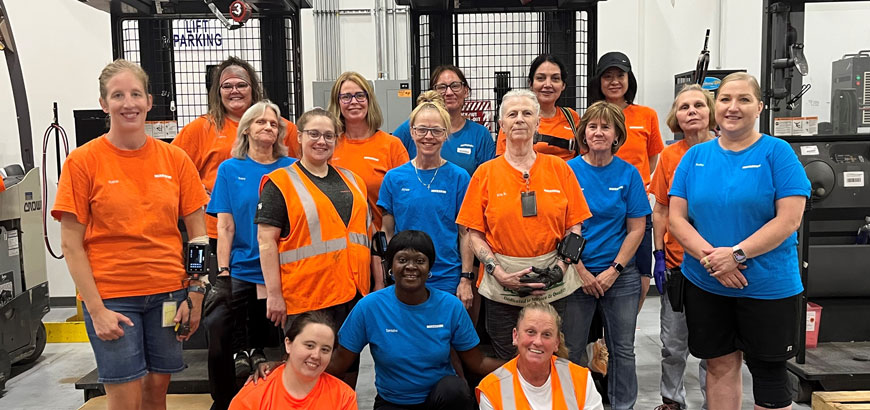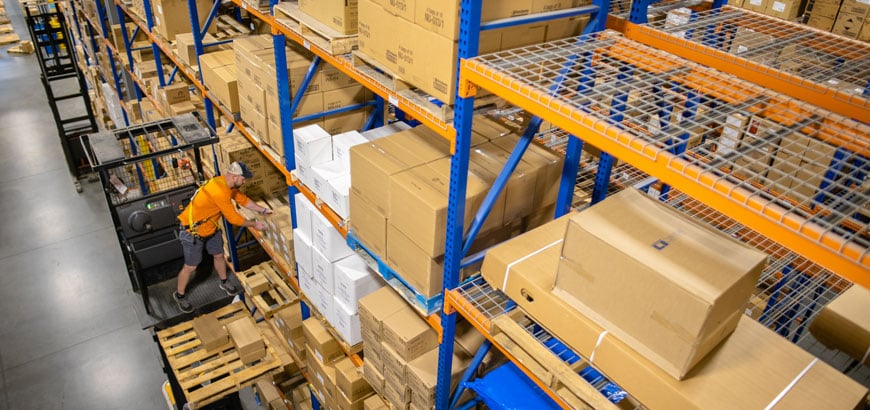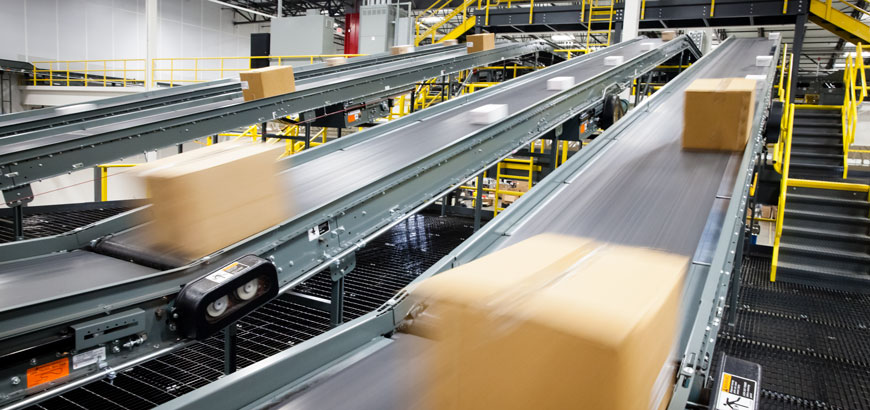Read time: 2.5 minutes
In the heart of healthcare operations at the McKesson Medical-Surgical Distribution Center (DC) in Rogers, Minn., a remarkable group of 16 women are defying stereotypes and driving change – literally.
These women are all certified to operate a powered industrial truck (PIT) – or, more commonly known as a forklift. It is reported that only around 10% of forklift drivers in the U.S. are female. In such a male-dominated field, each of these women demonstrate their prowess in maneuvering complex machinery.
Playing a pivotal role in helping ensure that medical supplies reach their intended destinations efficiently and reliably, they have become a symbol of empowerment in an industry vital to the well-being of countless individuals. These women contribute to fulfilling an average of 7,000-10,000 products every day and assuring customer orders are neatly stacked and packed for safe travel.
With their forklift driving tenure ranging from two months to more than 43 years, this diverse cohort of women has harnessed their individual talents to propel the Rogers DC to new heights. And the impact is having a ripple effect across the team, with additional women at the DC taking note and volunteering to get their PIT certification — a training that’s offered onsite within the DC for those interested in pursuing their certification.
“I am grateful for the opportunity that was given to me to expand my skill set, and I like seeing other women being given the opportunity as well,” says Kathy Farmer, a material handler. “It shows me there is no limit to the possibilities afforded to us through McKesson.”

Picture above, Michelle Gabrielli, material handler
Gaining certification to operate a forklift demands dedication and learning. It includes four hours of online training, hands-on experience under the guidance of an onsite designated trainer, and ultimately, a permanent license after three months of driving. This training is done in addition to their day-to-day responsibilities, and these women have embraced it wholeheartedly.
Amanda Little, once a hairstylist and salon manager, has found gratification in the transition to becoming a material handler.
“I came from the beauty industry, and feel empowered to have the opportunity to learn things that I felt were out of my realm,” she says about her transformative experience of stepping outside of her comfort zone.
As these women continue to steer the Rogers DC toward new horizons, their journeys serve as a powerful reminder of the untapped potential within every team. Material handler Carla Dubbeldee speaks about how the forklift certification has motivated her to take on additional tasks and responsibilities, enriching her skill set and laying the groundwork for potential career advancements.
“Being able to drive and work in different areas of the building is helping expand my knowledge about supply chain operations,” Dubbeldee says.
The ability for this group of women to come together and support one another stands as a testament to the strength of collaboration and the significance of gender diversity in the workplace. And in an industry where time-sensitive delivery of medical supplies is critical, they’re not only continuing to navigate the complex web of healthcare logistics together, but serving as an inspiration to women everywhere.




Share
Post
Post
Email